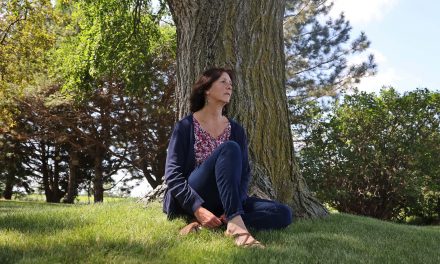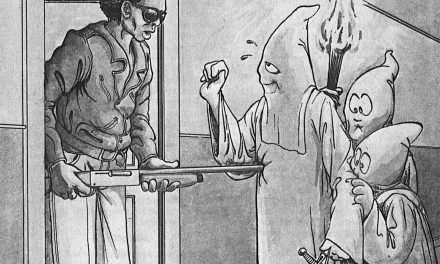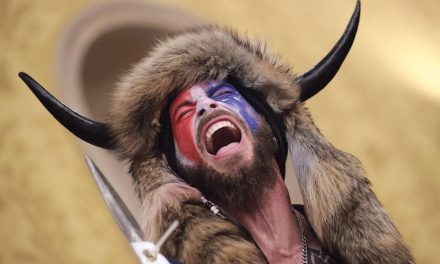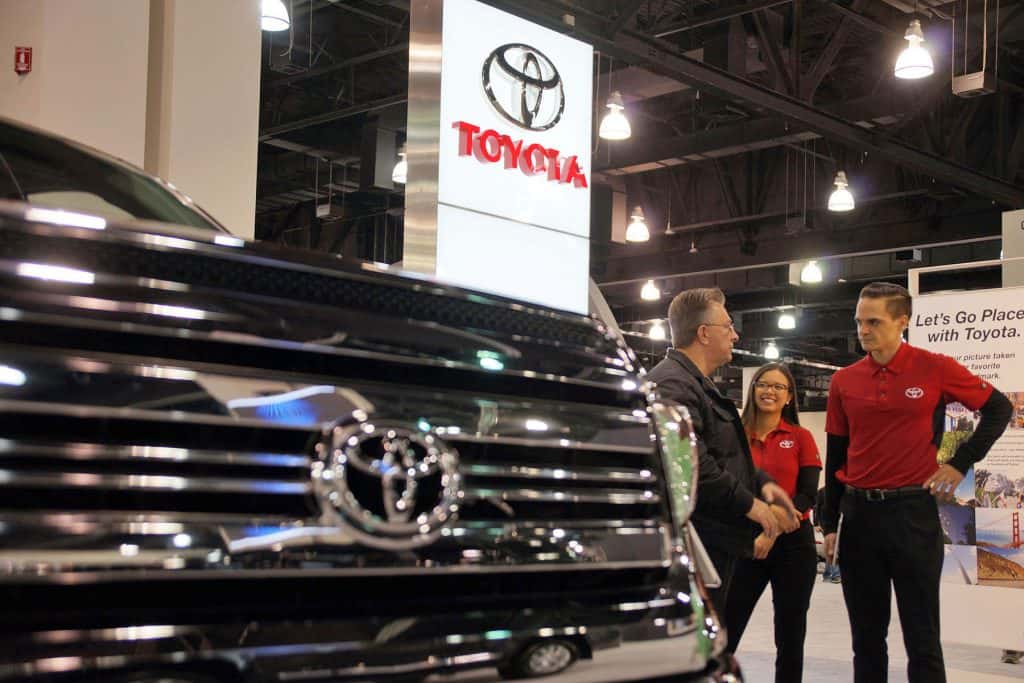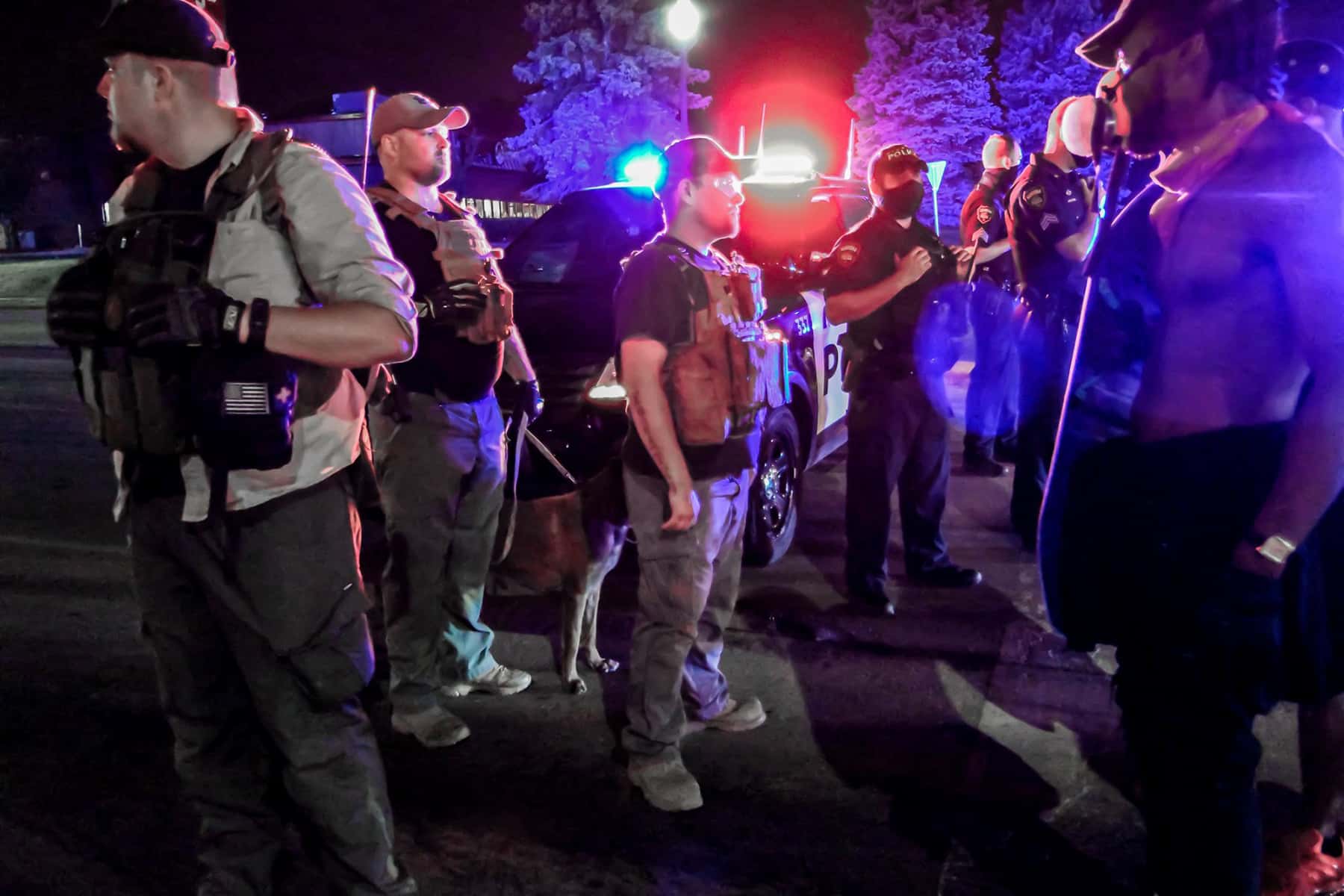
Hours before a 17-year-old white man allegedly killed two people and injured a third at protests over a police shooting in Kenosha, Wisconsin, a local militia group posted a call on Facebook: “Any patriots willing to take up arms and defend our city tonight from evil thugs?”
It is not yet clear if Kyle Rittenhouse, the Illinois teenager arrested on suspicion of murder after last night’s shootings in Kenosha, was among the people who responded to the call the militia group had posted, which was later featured on the conspiracy theory site InfoWars.
A Facebook account listed under Rittenhouse’s name included images of the young white man posting with a military-style rifle, as well as multiple posts expressing support for law enforcement.
He included the pro-police slogan “blue lives matter” on his profile photo. A post in 2018 asked for people to donate to Humanizing the Badge, a non-profit organization that seeks to create “stronger” relationships between police and communities.
Facebook said that it had not yet found evidence that suggested that Rittenhouse had followed the page of the militia group, Kenosha Guard, or that he was invited on the event page they organized for Tuesday, which urged armed citizens to protect their lives and property.
But it confirmed on Wednesday that it had taken down Kenosha Guard’s page for violating its new policy against organizations and movements tied to violence, including militia groups. Kenosha Guard said that it was “unaware” if the shooter was “answering the Kenosha Guard Militia’s call to arms”, the group posted on Facebook on Wednesday morning, shortly before Facebook took it down.
The group’s founder, 36-year-old Kevin Mathewson, said that a 17-year-old “had no business being armed legally or ethically,” but the shooter is “responsible for his own actions.” Before the shooting, the presence of armed white men at the Black Lives Matter protests in Kenosha on Tuesday night prompted criticism from protesters – and some support from law enforcement.
In a widely circulating video from Tuesday night, Kenosha police can be heard thanking and tossing bottled water from an armored vehicle to what appear to be armed civilians walking the streets.
“We appreciate you being here,” an officer was heard saying over a loudspeaker.
But David Best, the county sheriff, told media outlets after the shooting that people patrolling the streets in Kenosha were a “like a vigilante group,” and said that the shooting was evidence of why suggestions to deputize citizens to help law enforcement contain the unrest in the city had been a bad idea.
“Hell no … no way. Last night was the perfect reason why I would not do that,” he said at a press conference in Kenosha on August 26.
Best said that militia notices he saw on social media “looked like party invitations.” He said that deputizing citizens to provide law enforcement would entail such individuals coming under the umbrella of the sheriff’s office.
“So that would in reality have been a deputy sheriff who killed two people last night. The liability that goes with that would have been immense,” he said.
Kenosha Guard was the Wisconsin militia group that called for armed citizens to patrol Kenosha on Tuesday night, August 25. The recently formed organization put out a “general call to arms.” Mathewson, a 36-year former Kenosha city alderman known for clashing with city officials, said he was upset at the unrest in the city after the police shooting of Jacob Blake.
The group’s message, he said, was a call to Americans to exercise their right to bear arms: “If you love our city and don’t want to see it burn, get your guns and go outside.”
Kenosha Guard’s Facebook posts and planned Tuesday night event were covered by the conspiracy theory website InfoWars, and prompted a passionate response, Mathewson said, with private messages from hundreds of people, and thousands of people who indicated they might attend the event. But some protesters who saw the armed men, including Mathewson, who said he was carrying an AR-15 rifle on Tuesday night, criticized their presence.
“I question that gentleman showing up in military fatigues and sidearms at a peaceful protest,” the Rev. Dr Monica Cummings of Bradford Community church told CBS Chicago.
After the militia’s Facebook posts made their way to the community, some protesters said they feared that “white supremacist violence” would derail their otherwise peaceful protests.
“We saw white supremacists on Facebook threatening to gun us all down and mess up our movement,” said Chris Rosmann, a protester standing in a park near where Jacob Blake was shot, gathering with a diverse group of demonstrators. “And we know the media is going to shift the narrative in their favor, even though that’s not us causing the harm.”
Among a group of men standing outside a burnt-out car dealership, one of the business casualties of the unrest, a local named Josh, who asked to withhold his last name for safety reasons, said: “Locals definitely are not in total agreement with the police here, but we’re all just confused and scared by the people coming in and stoking violence,” he said.
He said he had lived in Kenosha all his life and was confused by the violence taking place. Some bystanders said that the situation on Tuesday night, August 25, was so chaotic that it was unclear even to some protesters and media on the scene whether gunfire was coming only from militia-type vigilantes or also some local business owners standing guard with guns over their properties.
Facebook’s new policy to take action on groups linked to violence was announced on 19 August and was designed to address groups that “demonstrated significant risks to public safety” but did not rise to the level of terrorist organizations or hate groups. Upon announcement of the policy, Facebook said it had banned 980 groups and 520 pages associated with American-based militias or groups. Facebook said it was still investigating the Kenosha incident.
Lоіs Bеckеtt, Julіа Cаrrіе Wоng, and Vіctоrіа Bеkіеmpіs
Portions originally published on The Guardian as Armed white men patrolling Kenosha protests organized on Facebook
Help deliver the independent journalism that the world needs, make a contribution of support to The Guardian.


